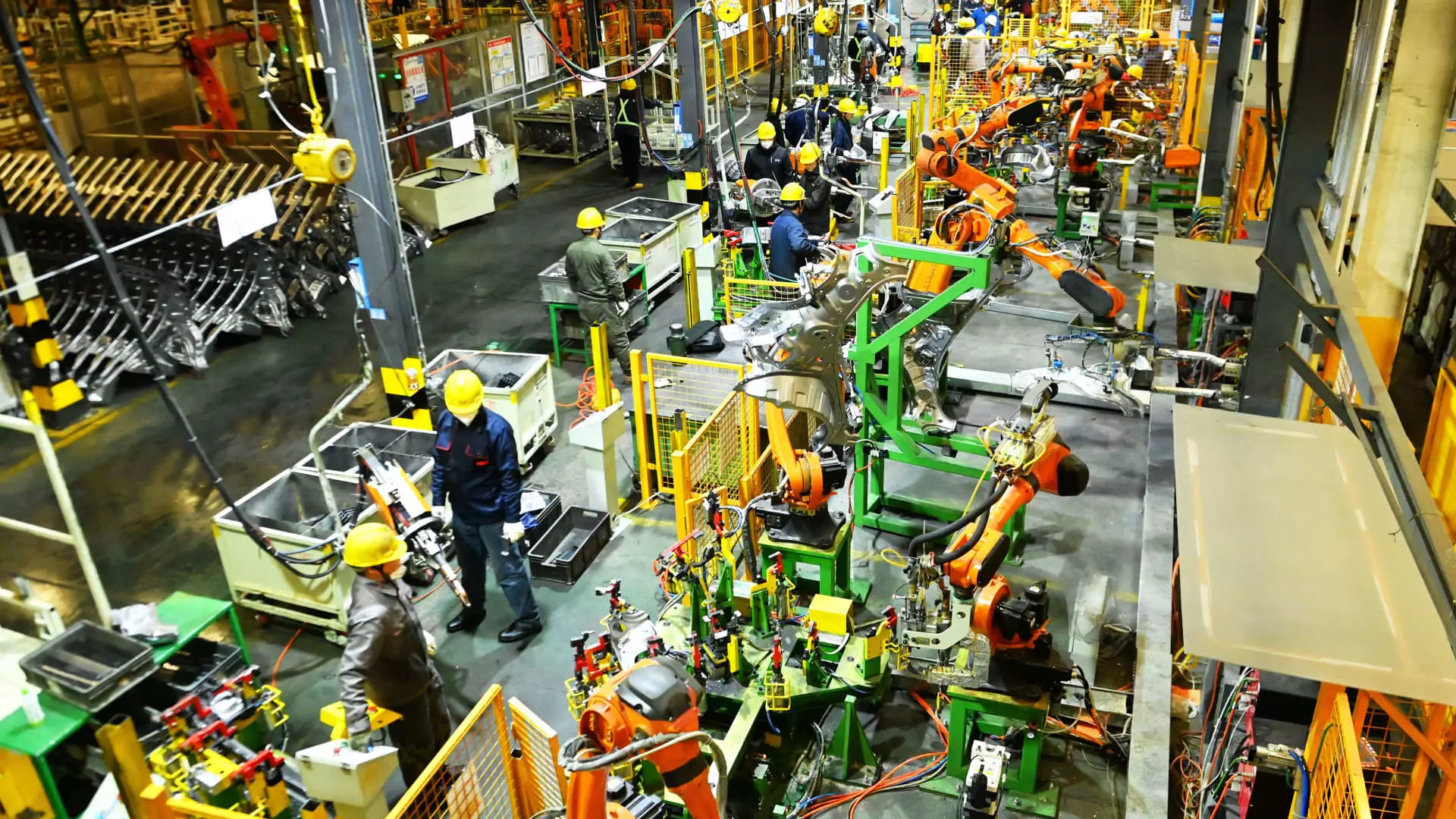The ongoing saga of President Donald Trump’s tariffs is a reminder of how economic policies can become nothing short of a chaotic dance, with the automotive industry caught in a tempest of uncertainty. Recent news reveals a potential reconsideration of tariffs on auto parts from China and Canada, aimed primarily at counteracting the opioid crisis linked to fentanyl production. While at first glance this may seem a strategic pivot to garner goodwill, it speaks volumes about the disarray within the current administration’s trade policies.
The idea of granting exemptions for automakers from some of these crippling tariffs appears to be more of a desperate lifeline than a coherent economic strategy. The automotive sector has become a pawn in Trump’s broader economic game. This industry, which employs millions of Americans and drives innovation, deserves thoughtful and stable policies, not erratic exemptions that could alter the landscape overnight. The fact that shares of major automakers saw a slight uptick—a mere flicker of hope in after-hours trading—does little to mask the underlying challenges they face with these looming tariffs.
Manufacturers Demand Substance Over Symbolism
As the automotive industry grapples with the ongoing pressure from 25% tariffs on vehicles and parts, it is essential to recognize that mere talks of exemptions are insufficient. The combined weight of tariffs related not only to imports but also to raw materials like steel and aluminum exacerbates the financial strain on auto manufacturers. This situation is not merely a financial inconvenience; it threatens the very foundation of U.S. automotive manufacturing.
The pronounced concerns from industry leaders, echoed by GM CEO Mary Barra’s plea for “clarity and consistency,” highlight the urgent need for a cohesive framework that transcends temporary relief measures. These tariffs have not only increased production costs but also stifled innovation and competitiveness—a detrimental effect that ripples out to the workforce and economy at large. When auto executives express that they cannot make “significant changes” without a clear understanding of future regulations, it signals a red flag about the administration’s overall economic direction.
A Coalition for Change in Uncertain Times
The recent alliance among leading policy groups from the U.S. automotive sector presents a compelling snapshot of an industry in crisis. It’s uncharacteristic for such diverse voices—from franchised dealers to major manufacturers—to unite in a common goal, yet it underscores the urgency of the situation. Their group effort to advocate against additional tariffs is not merely a tactical move; it reflects a broader recognition of the health of the ecosystem that supports auto manufacturing.
The proposed tariff on auto parts—the proverbial straw threatening to break the camel’s back—has spurred this coalition to undertake unprecedented lobbying efforts. They understand that failure to act could not only jeopardize their immediate profitability but also compromise the long-term viability of American automotive manufacturing. The stark reality is that components of these industries are “in distress,” and should the tariffs proceed as planned, the risk of losing critical suppliers is ever-present.
The Self-Destructive Loop of Tariff Policies
The chaotic nature of Trump’s tariff policies stands in stark contrast to the values of pragmatic economic governance. Protecting industries is important, but this misguided approach can breed self-destruction. Trump’s comments about possible increases in tariffs on Canadian cars do little more than infuse additional uncertainty into an already volatile environment. Instead of fostering a climate conducive to growth, these fluctuating tariffs have created a feedback loop that undermines both local manufacturing capability and consumer stability.
The paradox is that while tariffs ostensibly aim to bolster domestic production, they may be pushing manufacturers toward outsourcing, which is in direct opposition to the original intent. As escalating costs ripple through the supply chain, a larger question looms: should short-term political gain be prioritized over sustainable economic progress? In the theater of economic politics, the unsustainable dance of tariffs should give way to comprehensive reforms that benefit the American worker and industry alike, rather than succumbing to the whims of a haphazard trade strategy.


Leave a Reply